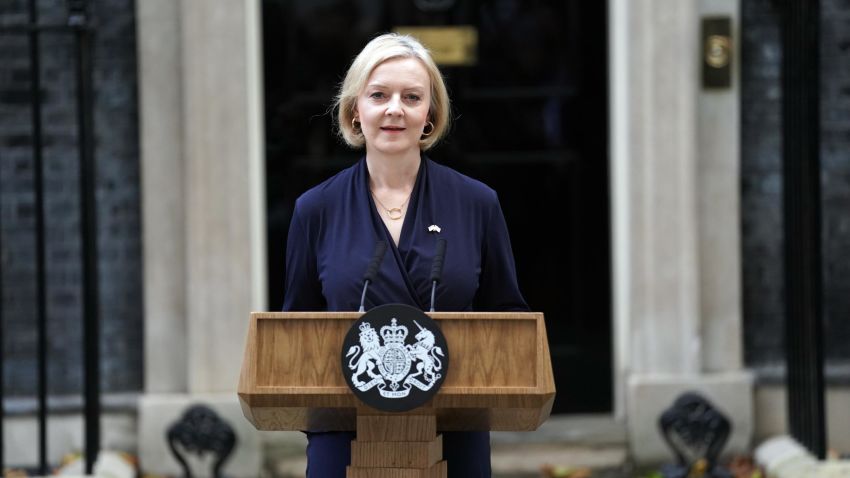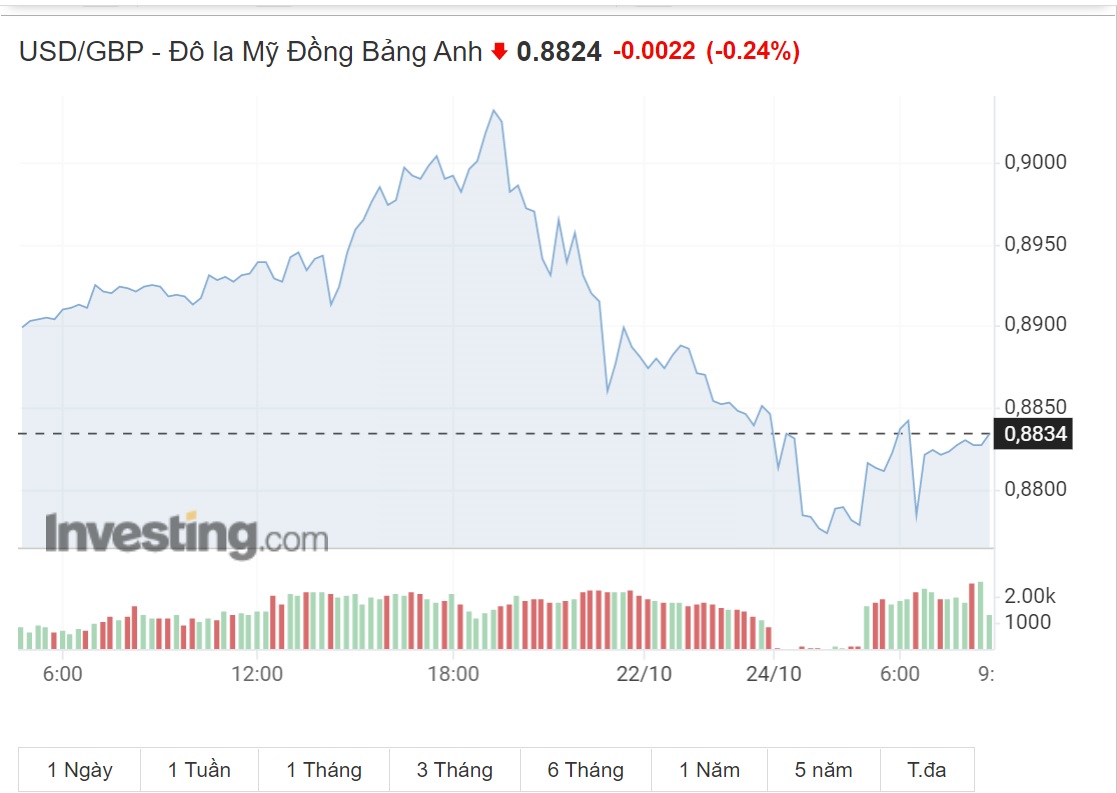The pound will remain vulnerable
It is going to be a long way back for sterling to recapture the lost ground because policymakers’ credibility has been shot to pieces.

UK Prime Minister Liz Truss resigns after failed budget and market turmoil
>> Some major headwinds for the UK economy
The recent mini budget in the UK has been labelled as possibly the worst piece of economic and political judgement in living memory. That might be the case, although the decision to hold a referendum on EU membership must be pretty high on the list as well.
The sudden loss of confidence in UK policymaking has been staggering. It is hard to recollect a worse piece of economic and political judgement than that encapsulated in the mini budget delivered by the new Chancellor of the Exchequer Kwarteng in late September. The UK appears to have become the world’s laughing stock. You can even see in comments from overseas policymakers that there is incredulity at the government’s decision to dramatically ease fiscal policy at a time when the Bank of England is working furiously to reduce demand and contain inflation.
Australian Treasurer Chalmers said just recently that the budget in coming weeks would be steady; it won’t be “flashy”. That’s surely a veiled reference to the fact that Australia won’t “do a UK” and blow up its bond market. What’s left now is a damage limit ation exercise for the government as it seemingly limps along to a heavy election defeat in around two years’ time. The cost of the government’s fiscal naivety will be the opposite of the stronger growth that was promised. The surge in long-term rates will help set the seal on what was already looking like a very nasty recession.
Mr. Jeremy Stevens, Asia Economist at Standard Bank, expects GDP to fall 1% next year, a forecast lower than the -0.2% median forecast from other analysts in the regular Bloomberg survey. Weaker growth will mean lower inflation but a wage-price spiral is already in progress, with average earnings now up to 6%. Tightness in the labour market, and greater militancy in the UK than many other advanced nations, implies wage growth staying elevated, which might mean that CPI inflation will only ease down to around 6% next year from an assumed average of 9.5% this year.
>> Will the UK’s disastrous mini budget impact the pound?
The Bank of England’s job in all this is hard enough, even without the vulnerability in the gilt market and particularly UK pension funds that have been so cruelly exposed in the wake of the mini budget. The market is still pricing in a very sharp rise in base rates to around 5.75% from its current 2.25%. When you compare that with rate expectations priced into the likes of the US and euro zone – which are far lower than the UK – it clearly seems that the market is almost trying to factor in some sort of crisis that makes the bank panic and hike rates substantially. Such a crisis could come, for instance, through a complete lack of confidence in UK assets, such as gilts and the pound, that forces the MPC to lift rates above and beyond levels that might reasonably be expected to bring inflation back to target.

The pound could just avoid a slump through parity against the dollar.
“Our view is that base rates won’t reach these heights. But, at a peak of 4.5% in 2023, we still see base rates some 100 bps above median forecasts from other analysts in the regular Bloomberg survey. The surge in gilt yields might be down to problems in one particular corner of the pensions market in the UK, but the source of the difficulty– the use of leverage and the reach for yield – are things that may come to light in other pockets of global markets as rates continue to rise”, said Mr. Jeremy Stevens.
In Mr. Jeremy Stevens’s view, the fortunes of the pound in the short term are heavily tied to the gilt market because he suspects that gilt investors have been forced to liquidate non-UK investments as well, which has led them to ditch dollar hedges and buy the dollar back. Should the BoE’s efforts to stabilise the gilt market work, alongside government’s attempts to show some fiscal responsibility, the pound could just avoid a slump through parity against the dollar.
At the moment, it is going to be a long way back for sterling to recapture the lost ground because policymakers’ credibility has been shot to pieces. A saving grace, perhaps, is that any longer-term recovery against the dollar is likely to come from widespread dollar declines as global growth recovers, asset prices rally, and the Fed ends its rate hikes. But all this is at least 6 months away and, in the meantime, the pound will remain vulnerable.








